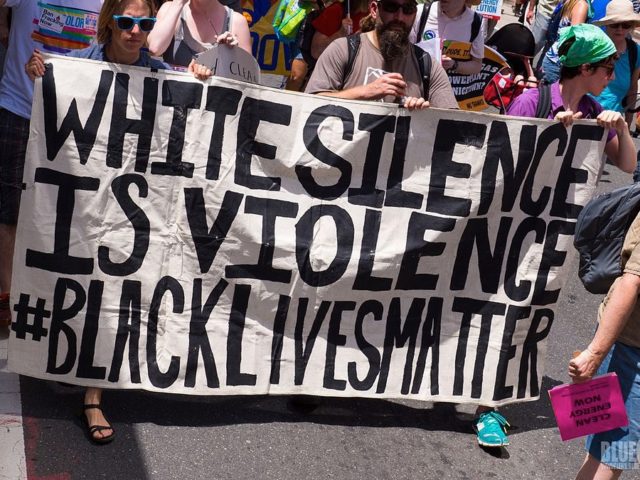Webster University in St. Louis, Missouri, is considering the implementation of “Witnessing Whiteness,” a new program that will encourage white students to discuss and come to terms with their own racism and white privilege.
Witnessing Whiteness was introduced by Webster University’s new Chief Diversity Officer, Vincent Flewellen, who has organized a the same program as the Director of Equity and Inclusion at Washington University, according to the university’s school newspaper.
The program is based on the book Witnessing Whiteness: The Need To Talk About Race and How To Do It by Shelly Tochluk, and would require all participants to be white. The workshop is said to “help educate and shine light on racial injustices that happen in the world.”
“The program helps members grasp a better understanding of what racism and white privilege is and how to stop it,” said the school’s newspaper, “Universities can also offer the program to students for credit.”
Flewellen says that Witnessing Whiteness may be launched in partnership with the YWCA of Metro St. Louis.
The Racial Justice Director of YWCA Metro St. Louis, Mary Ferguson, insists that white-only spaces for white individuals to talk about their own racism is necessary in order to produce meaningful results, adding that white people are less likely to be “forthcoming” or “do as deep a learning” in the presence on non-whites.
“It’s focused on white people seeing themselves as white and understanding how their white identity has shaped not only them in their experiences, but shapes a lot of culture and institutions that everyone has to experience,” said Ferguson, according to the university’s newspaper.
The university’s new Chief Diversity Officer agrees that the program should be white-only.
“Witnessing Whiteness allows for people of color not to have to do that work,” said Flewellen to NBC News, “and for the accountability really to fall upon white folks. I think white folks have to be the ones who have to do the work in eliminating racism.”
“I used to think I was this perfect little white person in a bubble that didn’t do anything bad to black people,” said Nicole O’Connor, a nurse practitioner who attends what appears to be a local Witnessing Whiteness support group for non-students in the St. Louis area.
O’Connor added that she had realized she was racist after a black man inquired about a dining room table she was selling on Facebook, which prompted her to tell her husband not to leave her alone in their home if the potential buyer came over to look at the furniture.
“White folks actually do need to be more courageous about approaching the conversation of race,” said Flewellen, adding that white people need to “move into that space of discomfort” in order to grow as a white person.
You can follow Alana Mastrangelo on Twitter at @ARmastrangelo and on Instagram.

COMMENTS
Please let us know if you're having issues with commenting.